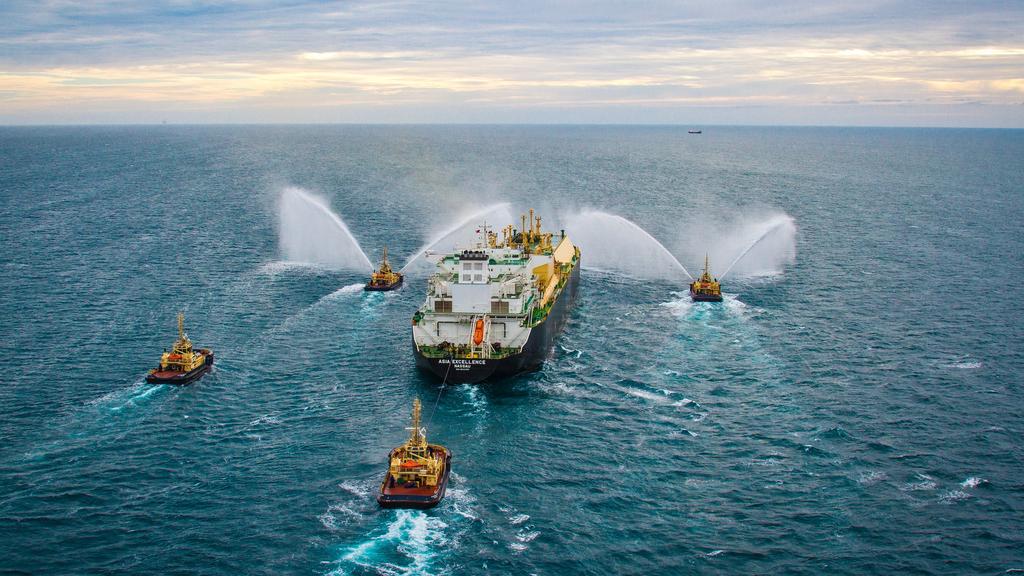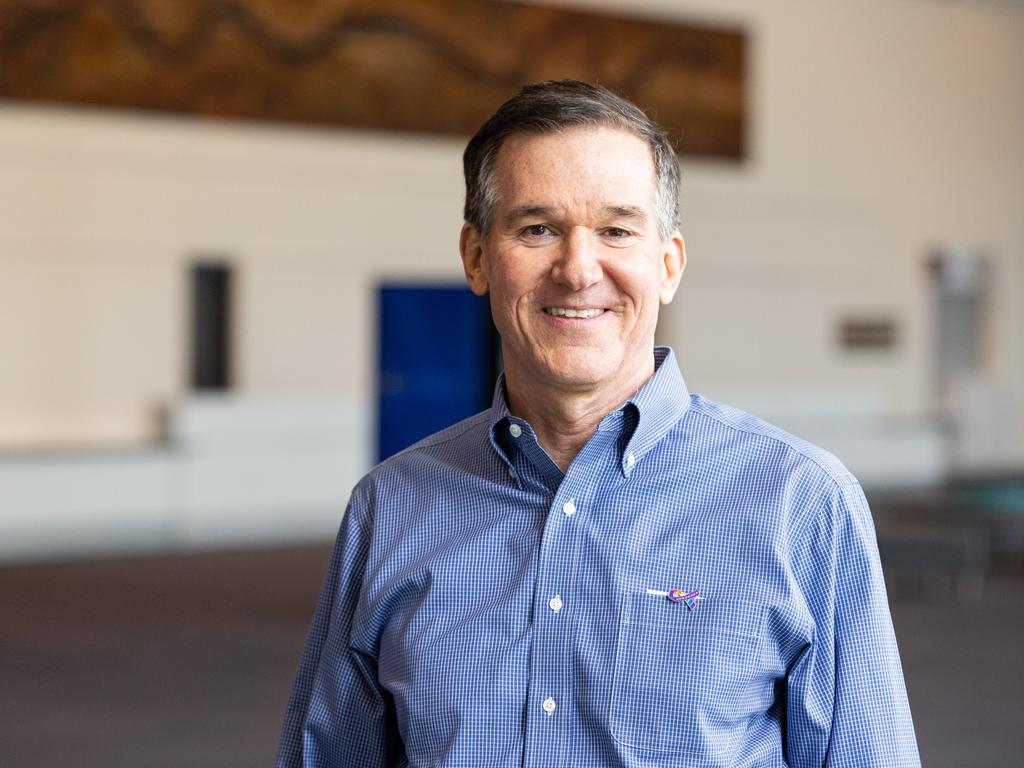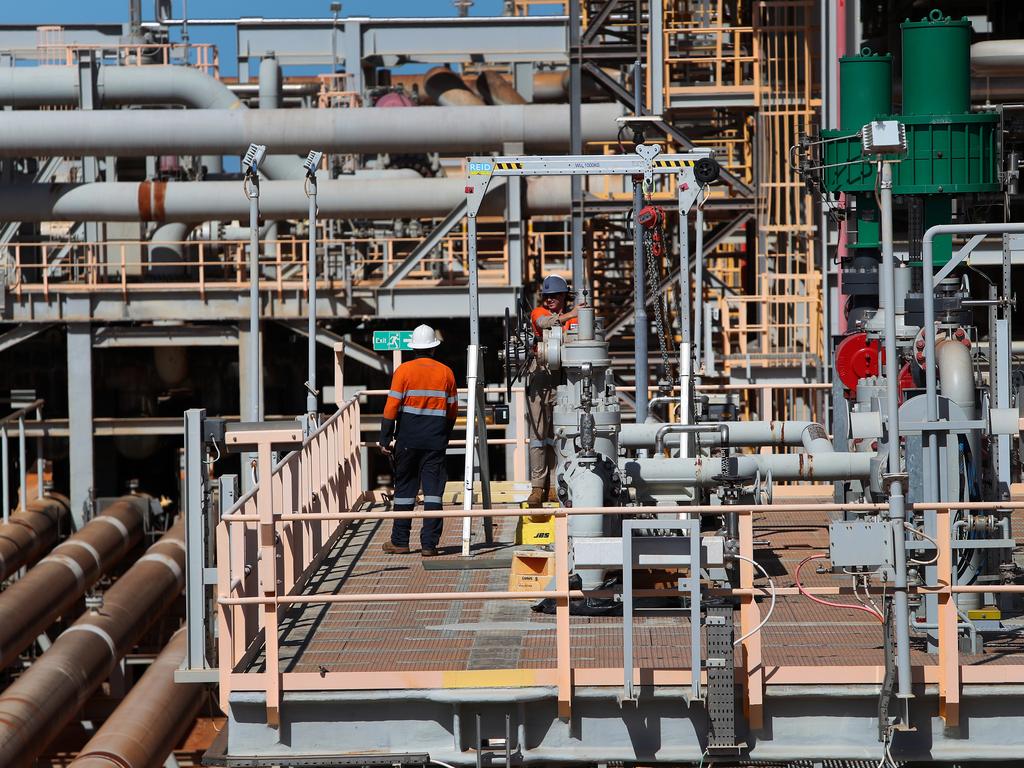
Article by Glenda Korporaal, courtesy of The Australian
06.04.2025

“At Chevron, we’ve been part of Australia for over 70 years,” he says in an interview with The Australian ahead of his departure later this month.
“It’s not been easy, but it’s been pragmatic, predictable and very stable.
“But in the past few years, we’ve seen some things come forward which – any one of them might not be that big of a deal – but the cumulative effect of several of them happening within a two or three-year span would create a bit of policy uncertainty for investors.”
Oil and gas industry players are taking a sharper look, he says.
“Australia is at a crossroads. You’ve got decades of being a good place to invest, a predictable place to invest, and now – in a few short years – a couple of things have popped up which the industry has said, ‘Is this it? Or is it going to continue in that direction?’
“At the end of the day, investors have choices, and we owe it to our shareholders to do what’s right for our shareholders, just like the Australian government has a role to play to do what’s best for Australia.”
Mr Hatfield’s comments echo those of other global companies including BHP and Woodside, each of which has been impacted by different policies, which are indicating that Australia has become a less attractive place to make big ticket investment project decisions.
His parting words come amid a closely fought federal election campaign where energy policy is a key issue, with Peter Dutton calling for a domestic gas reservation policy to meet energy needs on the east coast.
While it does not directly affect Chevron Australia, whose gas assets are all in Western Australia, it is yet another potential policy shift in Australia as the country grapples with rising energy costs, potential energy shortages in some states, and a fierce debate over the role of gas in Australia’s energy transition.
It was an optimistic view of Australia 15 years ago which saw Chevron’s decision to invest $80bn in its Gorgon and Wheatstone natural gas projects in Western Australia expanding its longstanding stake in the North West Shelf project.
The company’s other local assets include Australia’s largest onshore oilfield on Barrow Island, and the Caltex network of service stations around the country.
But it is taking a more cautious attitude to future investments in Australia.
Mr Hatfield’s successor will oversee the deal he has negotiated with Woodside last year to buy Chevron’s one sixth interest in the North West Shelf venture, where it has been a non-operating partner for the past 40 years.
The deal, which is expected to close in 2026, involves an asset swap that will see Chevron hand over its stake in the North West Shelf to Woodside, in exchange for it picking up Woodside’s 13 per cent stake in the Wheatstone project, increasing Chevron’s ownership of the Pilbara operation to more than 77 per cent.

Chevron will also pick up Woodside’s 65 per cent slice of the Julimar-Brunello gas field development project, which provides Wheatstone with gas. Mr Hatfield says the deal will allow Chevron to “consolidate our focus and resources on key assets we operate in Western Australia, in this case our Wheatstone Project.”
Arriving in Australia during Covid, after overseeing Chevron’s deepwater exploration and production operations in what was then called the Gulf of Mexico, the Chevron career lifer had to undergo two weeks of quarantine.
His time in Australia has included the election of the Albanese government in 2022 – with its promise that the shift to net zero by 2050, including a significant move away from coal and towards renewables, could be done while keeping energy prices low – as well as the emergence of an anti-gas movement in Australia, and federal government policy changes such as those to the petroleum resource rent tax.
More recently, Australia has seen a growing concern about rising energy prices and policies that could see potential gas shortages on the east coast.
“Australia was doing a phenomenal job trying to push the lower carbon envelope,” Mr Hatfield said. “But what we see at Chevron is that you can’t over index one part of it.
“People want reliable energy, they want affordable energy, they want cleaner energy. What we have seen in Australia – and in other parts of the world like Europe – is maybe an over-indexation on the cleaner point.”
As he says, in Europe the harsh reality of the Russian invasion of Ukraine has seen a shift towards a focus on energy security with less emphasis on the rate of the push towards cleaner energy.
“What I saw in Australia was a huge pivot – maybe a little bit too far – on the cleaner side,” he says.
“Now a lot of people are predicting an energy shortage among some of the east coast states.”
On the plus side, he feels, as he packs his bags, that there is now a recognition that gas has a role to play in Australia’s energy mix in the foreseeable future as it navigates the energy transition with the federal government’s future gas strategy and an apparent shift in attitude to gas by the Victorian government.
“Gas is clearly not as clean as renewables like wind and solar but as of today it’s more available, it’s much more reliable and it’s more affordable,” Mr Hatfield says.
“The energy transition is not going to happen as fast as probably any of us would like.”

Mr Hatfield is cautious about the Opposition Leader’s domestic gas reservation policies, which are designed to ease potential gas shortages on the east coast.
In Western Australia, as Mr Hatfield points out, the industry has lived with a domestic gas reservation policy which was the basis for Chevron’s investments in Gorgon and Wheatstone.
That policy sees Chevron supply around half of WA’s domestic gas needs while also supplying 6.5 per cent of the world’s LNG supply from Gorgon and Wheatstone.
In the short term, Chevron would not be directly impacted as its gas operations are in Western Australia, with the Coalition’s proposed domestic gas reservation policy affecting east coast supplies, but he would be concerned at the broader concept of any policy operating in retrospect.
“We’re still trying to understand (Mr Dutton’s policy). There are a lot of pieces to it,” he says.
“Parts of it have some green shoots of positivity in terms of getting more predictable regulation and approvals, which would be good for business.
“What I would be cautious of is a retrospective policy which was going to change the rules after the development has started.
“In WA it was a bit different. We knew going in that we had a domestic gas reservation policy so we could design our facilities for it, and we signed our long-term LNG contracts for that. WA is winning because those Chevron assets which were enabled by LNG development are now providing almost half the domestic gas it consumes every day.”
While Mr Dutton’s policy was specifically around east coast gas, Mr Hatfield says he would be concerned if Mr Dutton’s approach had broader implications for the gas industry in WA.
“We’re not sure what impact that could translate over to the West,” he says. “Any retrospective policy would give any investor a pause and a concern.”
Ideally, he says, global companies like Chevron would prefer bipartisan policies but the reality of the election campaign, and the very different approaches to energy policy, is that it is not going to happen any time soon.
Mr Hatfield says the changing policies in Australia have led to a concern by Japanese buyers about their own security of supplies from Australia, including gas. “Japan is not blessed with the natural resources Australia has,” he says. “The Japanese have investments in some of the resource development in Australia. They have signed some long-term contracts (to buy resources in Australia including gas) because they don’t have the natural resources which Australia has.
“What we’ve seen here in the last year or two, since some of these policies have been considered, is they are now going outside of Australia to help secure some of their natural gas needs.”
Mr Hatfield says the decision by Australian-owned gas company Woodside, its longtime partner in the North West Shelf, to invest in the US LNG industry, with plans for a new LNG production and export terminal in Louisiana, “is a sign that you’ve got one of the largest companies in Australia looking to invest some pretty sizeable amounts outside the country and in places which might be more stable or more predictable.”
The reality of the transition to cleaner energy, he argues, is a whole suite of different sources of energy to meet the demand – from renewables, to oil and gas and potentially hydrogen and possibly nuclear.
While some companies, such as Woodside, are cautious about the economics of carbon capture and storage, Mr Hatfield says he sees the sector having strong potential as a part of the energy transition. “It could actually be a very large business here,” he says.
But as the investment environment in Australia is not as attractive as it was, Mr Hatfield returns home to an America where business is struggling to come to terms with the radical policies of Donald Trump, including last week’s draconian global tariff regime.
Chevron’s Australian operations, which sell gas into Western Australia and North Asia, are not affected directly by the US tariffs but the company is watching the developments closely.
While Chevron could be expected to welcome the “drill baby, drill” approach of the US President, as a global company with interests around the world, it is also having to deal with other radical shifts such as tariffs on imports and Mr Trump’s recent pressure on Chevron to exit its operations in Venezuela because of his disputes with its leader, President Nicolas Maduro.
“We’re closely monitoring the evolving developments around tariffs, particularly any impacts to supply chains,” Mr Hatfield says.
“We’ve got colleagues in the US who continue to engage very constructively with the Trump/Vance administration, trying to help shape effective and durably policies that support delivering affordable, reliable and ever cleaner energy to our customers.
“Some of these things (Mr Trump’s policies) are coming fast and we’re taking time to make sure we understand the ramifications of all of them.
“We’ll take proactive steps to mitigate any potential impacts to our business as needed.”
Are Mr Trump’s policies going to cause a global recession?
“I certainly hope not,” Mr Hatfield replies cautiously, “but that’s probably a better question for an economist than a managing director.”

As he prepares to head home to Texas after four years as Chevron Australia’s managing director, Mark Hatfield sees Australia at a crossroads when it comes to the future of the oil and gas sector as an attractive destination for investment.